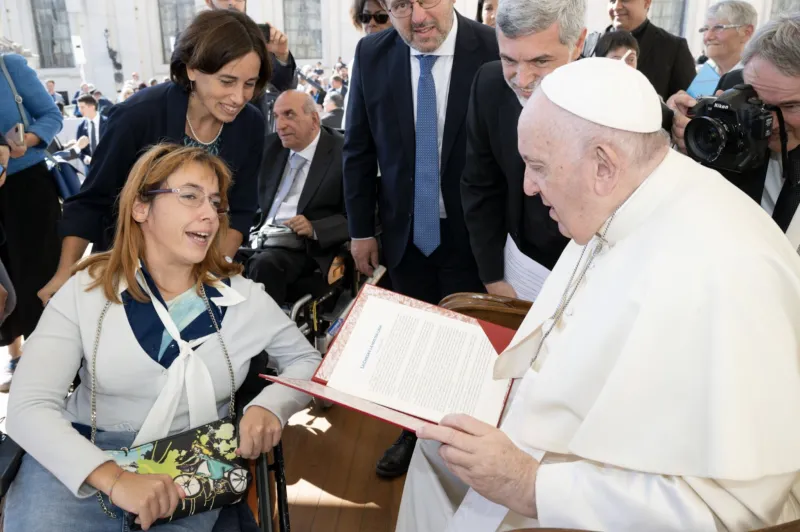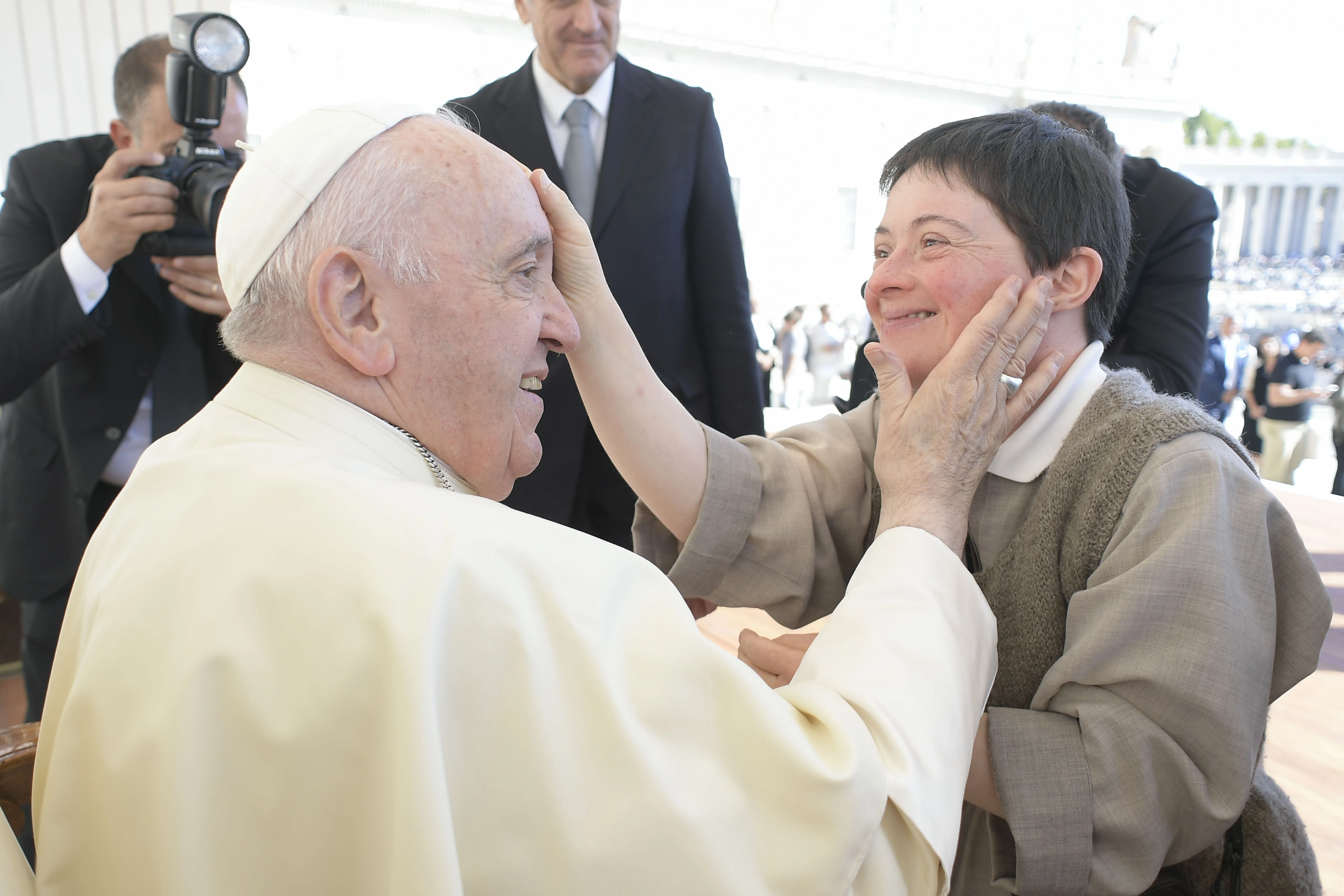
Rome Newsroom, Sep 21, 2022 / 07:25 am (CNA).
Catholics with disabilities delivered to Pope Francis on Wednesday a report they prepared for the Synod on Synodality.
The document was a synthesis of an online listening session held in May with 35 people with disabilities, coming from 20 countries and spanning five continents.
“I think the big message, which I think is being heard now, is that people who are disabled are actually full members of the Church,” Father Justin Glyn, a Jesuit priest from Australia, told CNA Sept. 21.
Glyn, who is blind, said there is a history in the Catholic Church of seeing people with disabilities as “recipients of charity, objects of pity.”
“Whereas I think now the message is very much that we are full participants in the Church, we are people who are part of a Church that walks together synodally,” he added.
The report from people with disabilities was hand-delivered to Pope Francis after his general audience in St. Peter’s Square on Sept. 21 by Giulia Cirillo, an Italian woman who uses a wheelchair.
Cirillo told CNA afterward that she thanked Pope Francis “because he gave all of us the opportunity to speak, that is, even us, persons who live firsthand with disabilities.”
Sister Marie Claire Rolland, a French religious sister with Down syndrome, also participated in the listening session and the drafting of the synthesis. After hugging Pope Francis — the third pope she has met during her life — Rolland blessed him, making a sign of the cross on his forehead.

The Vatican’s Dicastery for Laity, Family, and Life organized the virtual listening session in May and the preparation of the final report on what was shared.
Vittorio Scelzo, who oversees the dicastery’s area on the care of people with disabilities, told CNA the synthesis was delivered Sept. 20 to the committee tasked with preparing the synod’s first working document for the continental phase. The committee begins its work at a religious house near Frascati, Italy, on Sept. 21.
The laity, family, and life dicastery wanted the disabled to be “taken seriously,” Scelzo said. “The synod was perfect,” he noted, “the right moment, a kairos,” for hosting a listening session.
Father Glyn from Australia said his experience in the Church as a disabled man has been varied, but his experience as a priest with a disability is “hugely advantageous actually.”
He pointed to the problem of clericalism, explaining that “if you are a priest who knows that you are vulnerable, knows that you are weak, knows that you have the need of support of others, the temptation towards [clericalism] is not as strong because we know that we need each other.”
Cirillo, the woman who uses a wheelchair, said, “as a believer, I think each of us has a vocation that we need to discover, none of us is useless.”
“We can thus make a contribution for a more and more inclusive Church, also for people with disabilities,” she said.
“We all need help. Asking for help is not an embarrassment, it is our mission,” she continued. “Even when the condition of disability brings us extra difficulties, we have to remember that Jesus wants us to be joyful, and when we are sick, he is also sick for us. However our mission is to be joyful.”
Glyn said there are ways the Church still needs to improve accessibility to the sacraments and church buildings for the disabled. Still, it is also about people with disabilities being seen as full members of the Church, not as outsiders or a “them.”
“I think sometimes there’s been this view of disability as either a hangover of original sin [that] someday it’ll be made better — or on the other side, people privileged to suffer,” he said. “Whereas for most of us our lives are not suffering and our lives are joy. Our lives are made of the same things, made of the same fabric and stuff.”
If you value the news and views Catholic World Report provides, please consider donating to support our efforts. Your contribution will help us continue to make CWR available to all readers worldwide for free, without a subscription. Thank you for your generosity!
Click here for more information on donating to CWR. Click here to sign up for our newsletter.





Each and every life is sacred and precious. Able-bodied persons and persons with disabilities are important for the survival and well-being of Planet Earth, our Common Home.
Has anyone ever doubted that members with disabilities are not full members of the Church. Pity is a common, reasoned and natural response for those struggling/overcoming pain and suffering as a prelude to our compassion. On the other hand the Church should not cater to those that contend that they are victims of some cause or another that they feel requires remediation. Certainly modernism, the smoke of Satan, has complicated the issue.